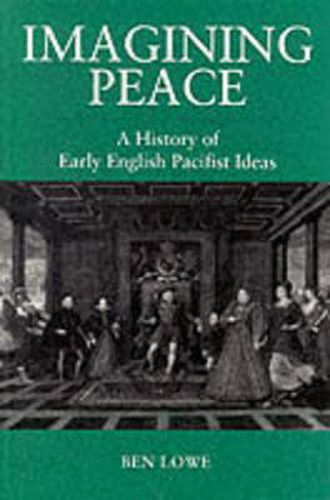Readings Newsletter
Become a Readings Member to make your shopping experience even easier.
Sign in or sign up for free!
You’re not far away from qualifying for FREE standard shipping within Australia
You’ve qualified for FREE standard shipping within Australia
The cart is loading…






In this work Ben Lowe examines the developing language of peace in late medieval and Renaissance England. He challenges the popular assumption that this was simply an age of war during which ideas of peace exercised very little impact on society and government. He offers a close reading of English writers on peace, integrating this analysis with careful attention to the political context, particularly during times of war, when calls for peace were more vocal. Lowe traces the concept of peace from its early Christian usage up to the 16th century. He focuses on the long period of foreign wars (1349-1560), often punctuated by domestic unrest, when theories of peace were increasingly discussed within the larger context of war and policymaking. Such practical concerns invariably led to a richer and more varied peace discourse. For instance, Lowe is able to show a shift in discussion away from platitudes - such as the restoration of good will among Christians - toward a more hard-hearted set of foreign-policy problems, such as famine, inflation, disruption of trade, and the maintenance of the king’s honour. He draws on a variety of sources, including theological and philosophical works, sermons, official prayers, moral treatises, commentaries, military handbooks, legal texts, state papers, chronicles, fiction, popular ballads, diaries and personal letters. Imagining Peace should appeal to others beyond historians of late medieval and early modern England. Lowe applies methods from other disciplines, especially literary and cultural studies and political theory. His analysis takes into account the problems and limitations of reconstructing past thought and determining authorial intent.
$9.00 standard shipping within Australia
FREE standard shipping within Australia for orders over $100.00
Express & International shipping calculated at checkout
In this work Ben Lowe examines the developing language of peace in late medieval and Renaissance England. He challenges the popular assumption that this was simply an age of war during which ideas of peace exercised very little impact on society and government. He offers a close reading of English writers on peace, integrating this analysis with careful attention to the political context, particularly during times of war, when calls for peace were more vocal. Lowe traces the concept of peace from its early Christian usage up to the 16th century. He focuses on the long period of foreign wars (1349-1560), often punctuated by domestic unrest, when theories of peace were increasingly discussed within the larger context of war and policymaking. Such practical concerns invariably led to a richer and more varied peace discourse. For instance, Lowe is able to show a shift in discussion away from platitudes - such as the restoration of good will among Christians - toward a more hard-hearted set of foreign-policy problems, such as famine, inflation, disruption of trade, and the maintenance of the king’s honour. He draws on a variety of sources, including theological and philosophical works, sermons, official prayers, moral treatises, commentaries, military handbooks, legal texts, state papers, chronicles, fiction, popular ballads, diaries and personal letters. Imagining Peace should appeal to others beyond historians of late medieval and early modern England. Lowe applies methods from other disciplines, especially literary and cultural studies and political theory. His analysis takes into account the problems and limitations of reconstructing past thought and determining authorial intent.